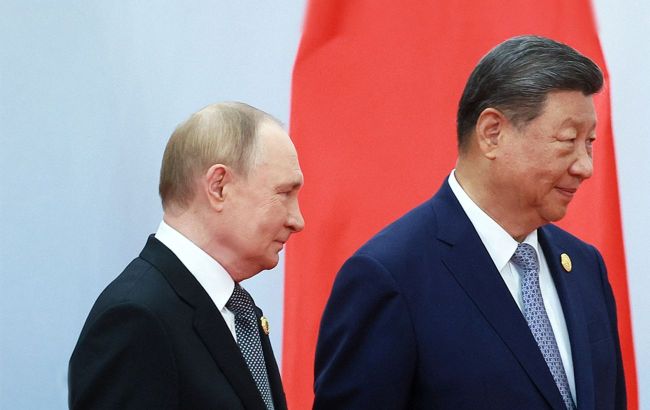Becoming dependent on Beijing: Ukraine reacts to Russia's new gas deals with China
 Photo: Russian President Vladimir Putin and Chinese leader Xi Jinping (Getty Images)
Photo: Russian President Vladimir Putin and Chinese leader Xi Jinping (Getty Images)
Russia has signed a new gas memorandum with China, calling it a breakthrough. However, in reality, it is a capitulation and an acknowledgment of vassal dependence on Beijing, stated Andriy Kovalenko, head of the Center for Countering Disinformation.
"Putin has finally ruined the legacy of Lenin, Stalin, Khrushchev, and Brezhnev, who could never have imagined Moscow becoming a vassal of Beijing," Kovalenko said.
He emphasized that the Kremlin presents its agreements with Beijing as a strategic breakthrough, while in fact, it is another step toward the complete loss of independence.
What Russia signed
Gazprom has concluded a legally binding memorandum to build the Power of Siberia-2 gas pipeline through Mongolia, as well as the Soyuz Vostok transit pipeline.
The new route is expected to supply 50 billion cubic meters annually for 30 years.
An increase in pumping capacity for the Power of Siberia pipeline has also been agreed, from the current 38 billion cubic meters per year to 44 billion cubic meters per year. Russia and China also agreed to expand deliveries along the Far East route, initially set at 10 billion cubic meters annually.
"For Moscow, this is presented as a strategic breakthrough, but in reality, it is another step toward full dependence on Beijing," the Center head noted.
Why it matters
Kovalenko explains that behind the large numbers lies a simple reality: Moscow has lost the European market due to sanctions and is now forced to rely solely on Beijing.
"China is taking full advantage - dictating low prices, terms, and deadlines, forcing Moscow to sign deals that turn it into a subordinate appendage. In the end, Russia becomes fully dependent on Beijing’s will, while China strengthens its geopolitical position by controlling another critical lever," Kovalenko stressed.
Since the start of the full-scale invasion, China has been buying Russian oil at discounted prices, as well as gas, timber, and other raw materials.
India has also been actively purchasing Russian oil below market prices, with imports rising from less than 1% to over 30% after the invasion began.

